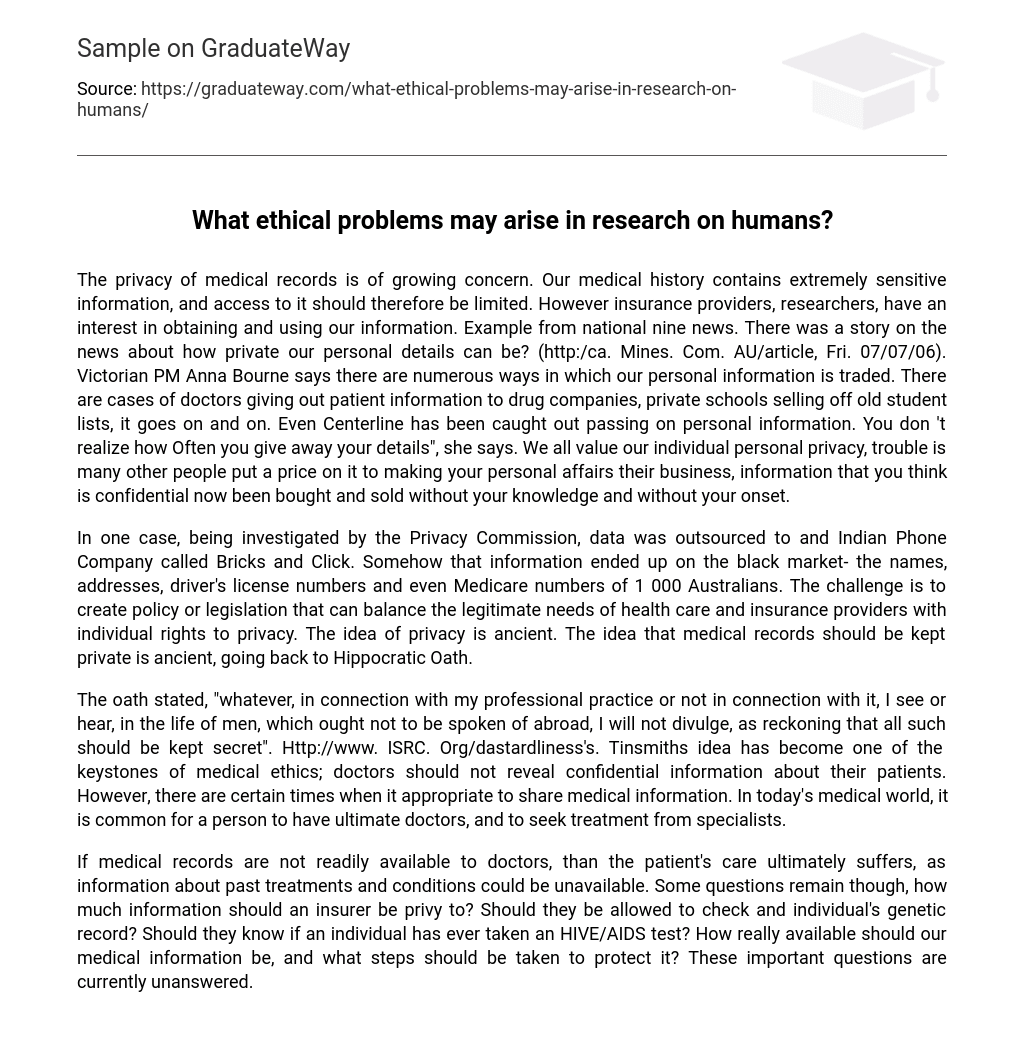The privacy of medical records is of growing concern. Our medical history contains extremely sensitive information, and access to it should therefore be limited. However insurance providers, researchers, have an interest in obtaining and using our information. Example from national nine news. There was a story on the news about how private our personal details can be? (http:/ca. Mines. Com. AU/article, Fri. 07/07/06). Victorian PM Anna Bourne says there are numerous ways in which our personal information is traded. There are cases of doctors giving out patient information to drug companies, private schools selling off old student lists, it goes on and on. Even Centerline has been caught out passing on personal information. You don ‘t realize how Often you give away your details”, she says. We all value our individual personal privacy, trouble is many other people put a price on it to making your personal affairs their business, information that you think is confidential now been bought and sold without your knowledge and without your onset.
In one case, being investigated by the Privacy Commission, data was outsourced to and Indian Phone Company called Bricks and Click. Somehow that information ended up on the black market- the names, addresses, driver’s license numbers and even Medicare numbers of 1 000 Australians. The challenge is to create policy or legislation that can balance the legitimate needs of health care and insurance providers with individual rights to privacy. The idea of privacy is ancient. The idea that medical records should be kept private is ancient, going back to Hippocratic Oath.
The oath stated, “whatever, in connection with my professional practice or not in connection with it, I see or hear, in the life of men, which ought not to be spoken of abroad, I will not divulge, as reckoning that all such should be kept secret”. Http://www. ISRC. Org/dastardliness’s. Tinsmiths idea has become one of the keystones of medical ethics; doctors should not reveal confidential information about their patients. However, there are certain times when it appropriate to share medical information. In today’s medical world, it is common for a person to have ultimate doctors, and to seek treatment from specialists.
If medical records are not readily available to doctors, than the patient’s care ultimately suffers, as information about past treatments and conditions could be unavailable. Some questions remain though, how much information should an insurer be privy to? Should they be allowed to check and individual’s genetic record? Should they know if an individual has ever taken an HIVE/AIDS test? How really available should our medical information be, and what steps should be taken to protect it? These important questions are currently unanswered.





